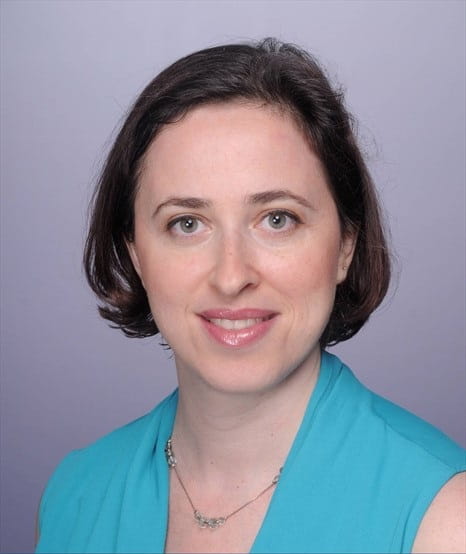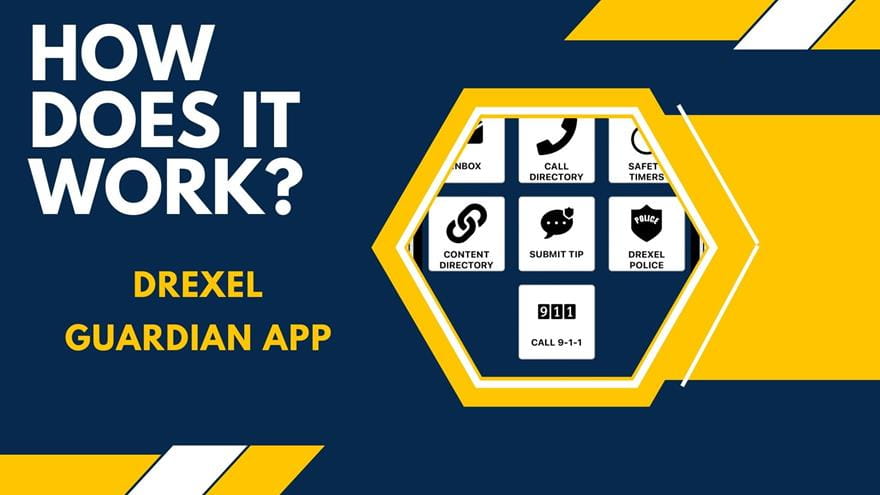The Secret Life of Postdocs, Vol. 2

This is the second installment in a series about why doctoral students at Drexel should consider postdocs and how to find the right opportunities. A forthcoming installment will feature interviews with current postdoctoral students at the University.
Natalie Chernets is not new to Drexel University, but she is new to her faculty position.
Chernets, PhD, is an assistant professor within the College of Medicine’s Graduate School of Biomedical Sciences and Professional Studies; the director of Postdoctoral Affairs and Professional Development; and the associate director of the MD/PhD program.
Chernets’ focus as the first director of Postdoctoral Affairs and Professional Development is as multidimensional as her title. Her main mission is to identify and unify the University’s postdoctoral community while establishing postdoctoral policies and an office that can help postdocs navigate their Drexel experience and connect them with other Dragons as needed.
However, Chernets is also happy to help Drexel doctoral students navigate identifying, applying and evaluating postdoctoral opportunities. In fact, it’s something she wishes she had more help with when she was a PhD student here, at Drexel.
DrexelNow sat down with Chernets to learn more about her background, her goals and her biggest pieces of advice for landing the right postdoc.

What’s your background, and what brought you here to Drexel?
I’m returning to Drexel as I was previously a PhD student in electrical engineering. I spent most of my time off campus in a lab in Camden at the Drexel Plasma Institute (now the Nyheim Plasma Institute), which made it difficult to engage in professional development opportunities. Then I went to a postdoc at Thomas Jefferson University. This is where I was exposed to the different career paths, different professional development opportunities, grant writing seminars and more. I enjoyed those activities, learning what I needed to know, or I wish I knew as a graduate student, and sharing this knowledge with other postdocs. That’s how I found my passion for professional development and even became the first Administrative Postdoctoral Fellow in the Office of Postdoctoral Affairs at Jefferson.
I would say that this is an opportunity for me to provide something that I felt that I didn’t have access to. I will be cautious to say that it wasn’t offered, but I didn’t have the access because I was working in a remote lab without easy commuting options, and like many students I was juggling teaching and research responsibilities with course work. I’m really passionate about speaking with graduate students and postdoctoral fellows about their next steps and helping them transition to independence. There are a lot of tools that are available to help students and postdocs do so. There are resources at Drexel that are available. Some of them are new, like the Center for the Advancement of STEM Teaching and Learning Excellence, and some of them are established, like the Steinbright Career Development Center. … So for me, it’s an opportunity to provide something that I wish I had as a student. This is my way of paying it forward.
What’s your biggest advice for doctoral students about a successful transition following graduation?
My message to graduate students is this: figure out what you want to do after graduation. It’s not something that you find out when you submit your thesis or dissertation. This is something that you have to be open-minded to and engaged with throughout your studies. Not everyone has the answer of what they want to be when they’re born. Sometimes interests and circumstances change. Gaining more understanding about what a profession that interests you is and what a day on the job looks like is helpful to figure out what you’re interested in, what kind of skills you have and what kind of values are important to you — this is a holistic approach. So, for graduate students, in order to be successful later on, you’re going to have to do the legwork early on. There are many career paths that are now available to PhD holders. You need to do the research now, so that you have an idea how to get there.
What do you think are some of the biggest misconceptions students have about postdoctoral opportunities?
Some folks default into postdocs as a backup plan as opposed to being intentional about it. Not every career path will require a postdoc — for example, most science writing positions don’t. Additionally, if you are not intentional about your postdoc, you can end up in a lab that does not match your skills and interest, and you may not be as happy or as productive in that lab. So it’s a good idea to try and be intentional about looking for a postdoc and figuring out if you even need a postdoc.
Before making your decision, have a conversation with your future mentor to understand their mentoring style, as well as reach out to current and past students and postdocs to understand the atmosphere in the lab. While some students will thrive in a high-profile lab with great publications and plenty of funding, others might find that this is too much pressure. To make this decision, you need to know yourself and understand what support you need so that you can select your next mentor wisely.
Do you think a lot of current doctoral students overlook the importance in networking?
Networking is really important. I think that a lot of people are intimidated by the word or idea of networking because they imagine a large, noisy room and think that the goal is to collect as many business cards as possible. Also, the idea of putting yourself out there and connecting with other people and defending what you do is sometimes difficult. But to me, networking [can be done in] a broader sense. You can use a tool called Information Interview to strategically network one-on-one by using LinkedIn and identifying professionals in the organization that you’re looking to apply to. Information Interview is essentially a conversation either in person, via phone or video conferencing where you are the interviewer and the professional is the interviewee. You can ask questions about the skills that are necessary in this position, promotion opportunities, salary range, special certificates that can be helpful and more. The only thing you can’t ask for is a job. Having one-on-one conversations is less intimidating than going into a big conference or concert hall and meeting people in this way.
In any case, it also helps to have your elevator speech, which is a short, 90-second introduction of yourself, in case you do meet someone you would like to connect with. And remember, networking does become easier when you practice. Importantly, don’t forget to follow up with people you connect with and thank them for their time.
You don’t always have to network with PhDs, either. You can even tell your neighbors, “Hey, I’m about to graduate and I’m looking for a job.” You never know who they know. … This is enough for them to sort of pass it along and say, “Hey, I know this person, maybe I should connect you.” This way, you can increase your network without having to go into those crowded events if this is not something you are accustomed to doing.
What are the ways that people find the right fit for their postdoc?
In order to find the best postdoc position or other position that’s good for you, you really have to know what’s important for YOU. You can begin by taking a test such as the Myers-Briggs Type Indicator to understand your communication style and be familiar with other communication styles out there. Some of the [graduate] students are required to take an individual development plan. From what I understand, some students just speed through it because it’s a requirement. From my experience, this individual development plan is a great tool for you to assess your skills, your interest and your values. You should spend time to identify those factors. Ideally, your next position will fit all skills, interests, and values. However, not all jobs can be ideal, but should meet as many factors as possible. Since every person is different and has different priorities, the job that is best for me may not be best for you. To me, your values and your interests are a little more important than your skills because you can always work on your skills and obtain additional training opportunities to improve them. But knowing what your values and interests are will help you secure the right position for you.
Today, there are a lot of opportunities for PhD graduates. There are positions in academia, in industry, in government. Even in academia, the positions can be teaching positions, administrative positions, completely research positions or a combination of the three. You have to find your niche if that’s something you want to do, but there are other opportunities that can work. Keep in mind that career exploration is not a linear process. Check out this great video by my colleagues at the University of California, San Francisco to illustrate the process.
Just remember, that all of us have more than one career path that can make us productive and satisfied. Anything that you really want, you can try to obtain it.
In This Article
Drexel News is produced by
University Marketing and Communications.

